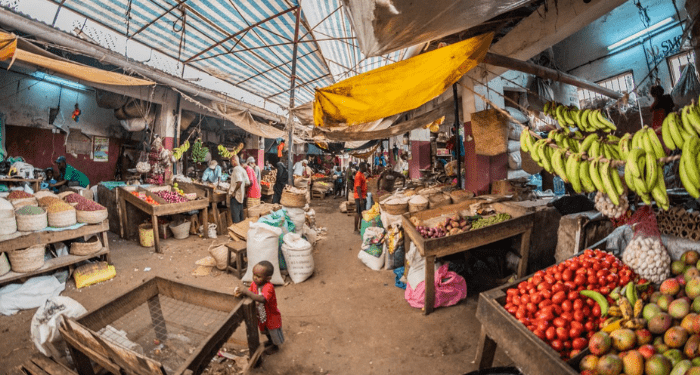Retailers and small business owners across Nigeria are raising fresh concerns about their inability to restock shelves in malls and supermarkets due to rising economic challenges and tightening regulations. This renewed alarm comes amid persisting inflation, reduced access to credit, and foreign exchange prioritisation that continues to weigh heavily on retail operations.
In October 2024, a report had already revealed how foreign exchange instability and soaring inflation rates crippled the ability of retailers to replenish stock. Now, stakeholders say things have only worsened.
At the heart of the current restocking crisis is a regulation from the Standards Organisation of Nigeria (SON), which bars shopping malls from displaying products lacking SON certification. Effective from March 1, the policy has drastically limited the number of products retailers can accept from small and medium-scale enterprises.
The president of the Association of Small Business Owners of Nigeria said this requirement is making an already difficult situation worse. According to him, many products previously certified by NAFDAC are now rejected because they lack SON approval. As a result, malls have stopped accepting such products, and SMEs willing to comply are forced to wait months for certification. This exclusion, he stressed, is leading to visibly empty shelves and harming both producers and retailers.
He also pointed to the high cost of borrowing and difficult payment terms as further barriers. Shopping malls, he noted, often require suppliers to issue local purchase orders and delay payments for up to 90 days. With interest rates at punishing highs, small businesses are finding it nearly impossible to keep production going under such conditions.
In response, some SMEs are shifting their focus to exports, especially to other African countries under the African Continental Free Trade Area agreement. The move allows them to earn in foreign currency, offering better value when converted back to naira. But while some businesses pivot outward, Nigeria’s domestic manufacturing base continues to shrink.
He noted that manufacturers, particularly smaller ones, are finding it harder to operate due to limited access to raw materials, which are mostly imported. The struggle to obtain dollars through commercial banks forces many SMEs to buy foreign exchange on the black market at higher rates, making their products less competitive compared to those from bigger companies with easier access to official FX channels.
To cushion the blow, he proposed that malls explore innovative strategies like subletting empty retail spaces to small vendors or adopting mixed-use business models. According to him, inviting sellers of items like yoghurt or perfumes into vacant spots could ease overhead costs and improve variety. He also urged mall operators to support their SME suppliers with soft loans to help meet certification requirements.
Beyond operational solutions, he called on malls to unite and advocate for better policies. A unified voice, he argued, would give them more power in addressing government regulations.
The director-general of the Nigerian Association of Small and Medium Enterprises echoed similar frustrations. He acknowledged that while Nigeria’s inflation rate has dropped slightly to 23.18 percent, high prices continue to cripple consumer spending and stall restocking.
According to him, many small businesses are unable to replace goods due to skyrocketing prices. He explained that beyond inflation figures, the real cost of goods has gone far beyond the reach of average buyers, reducing demand and weakening retailers’ ability to stock up.
He also backed the SON certification policy, saying safety and quality assurance are important. However, he advised shopping malls to implement proper internal compliance systems to ensure only certified and quality goods are stocked. This, he said, could boost customer trust and loyalty.
He concluded that if malls gain a reputation for high-quality products, customers themselves would become brand advocates, drawing more traffic and sales through word-of-mouth.
Despite the growing frustrations, both SME leaders agreed that collaboration, strategic innovation, and policy reform are critical to restoring Nigeria’s retail supply chain and helping local businesses survive.










